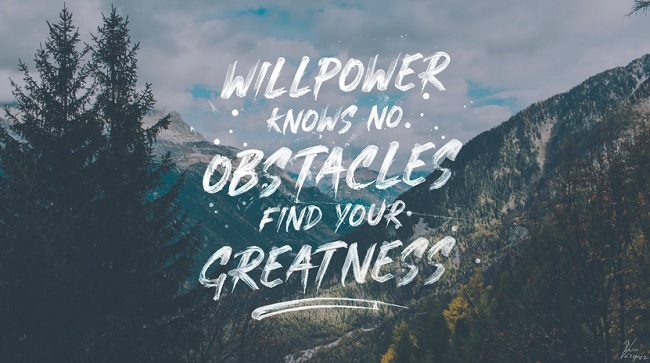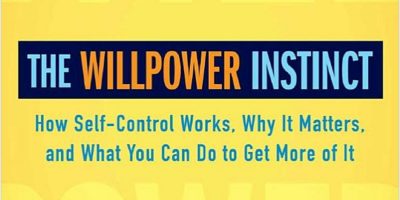The Willpower Instinct is one of those seemingly simple books that makes a big impact on your productivity. Kelly McGonigal, a Stanford University psychologist, based the book on her course called: “The Science of Willpower.” As you might have already guessed, the entire book focuses on the science behind your willpower or self control and how you can gain control over it.
While you should still definitely read McGonigal’s book if you’re struggling with procrastination or self control in general, these five key points will give you some insight into what this wildly popular book is all about.
1. Willpower Is Something You Can Develop
Sometimes willpower is considered a type of virtue. You’re either born with it or you’re not. However, The Willpower Instinct debunks this. McGonigal talks about willpower as a muscle. It’s something you exercise to get stronger. At the same time, that muscle can get tired if overworked.

The pause and plan response is just one way to help build your willpower. Instead of naturally running away from something you don’t want to do or think you can’t do, stop and focus inward as to why you feel this way. By taking time to reflect, you’re able to reduce your stress and feel more confident about tackling a challenge.
At the same time, you have to take care of yourself. Willpower requires energy. That’s why reducing stress in your environment, getting enough sleep, and putting your health first are all critical to improving your willpower.
2. Instant Gratification Hurts Your Future Self
An important takeaway that applies more than ever in today’s instant gratification society is that seeking out immediate gratification just hurts your future self. Sure, you can put things off right now because it makes you feel better; you may even call it self-care.

However, when you do this, you’re just sabotaging your future self. Eventually, someone has to deal with what you’re not doing. Does your future self deserve this? No. By thinking about the future versus this very moment, you see the benefits of pushing through a challenge, even if you don’t always want to.
This is especially true with longer tasks or long-term goals. McGonigal covers visualization techniques to help you reduce distractions and the desire for immediate gratification. This helps trick the part of your brain that wants everything now and tends to put important tasks off.
3. The Three Types of Willpower

The Willpower Instinct breaks willpower down into three types:
- I Won’t
- I Will
- I Want
I Won’t involves avoiding things that hurt you, such as binge-watching TV instead of going to sleep at night. This helps you break destructive habits.
I Will focuses on things you need to do to complete your tasks or goals. This helps you develop new habits.
Finally, I Want makes you focus on what’s important and what’s driving you. For instance, if you’re on a diet, your I Want might be to live longer so that you can spend more time with your children or grandchildren. It reminds you why you’re doing things that aren’t always in your comfort zone to boost your willpower.
4. Don’t Turn Success Into Failure
A critical point McGonigal covers is avoiding turning your successes into failures. For example, it’s fine to reward yourself, but not if it sets you back. Maybe you were productive for four days at work but decide to reward yourself by pushing aside the fifth day’s tasks to play video games or watch TV.

Yes, you succeeded, but now you have to scramble to make up for that reward the following week. Stress hurts your willpower. Adding more stress to your life can undo all the hard work you’ve been doing. Choose rewards that get you closer to your goals versus taking a step back.
5. Be Compassionate Toward Yourself
Finally, and one of my favorite points personally, is to be compassionate toward yourself. The Willpower Instinct talks about how guilt actually damages willpower. McGonigal says you can’t always control the way you think. Your mind may be telling you that doing a difficult task is just too hard. You could say: “Okay, let’s skip that for later” or take control and exercise your willpower by saying, “I will do this.”

You have control over the actions you take as a result of your thoughts. Feeling guilty about thoughts that try to push you off track isn’t worth it. That just leads to more negative thoughts and stress.
Let go and be compassionate. Yes, you won’t always get it right. Sometimes your willpower may not be strong enough in that moment. The key is to just keep strengthening your willpower over time and forgive yourself if you slip up. Dwelling on the past and your guilt doesn’t help. So forgive, move on, and learn the fine art of exercising your willpower.
